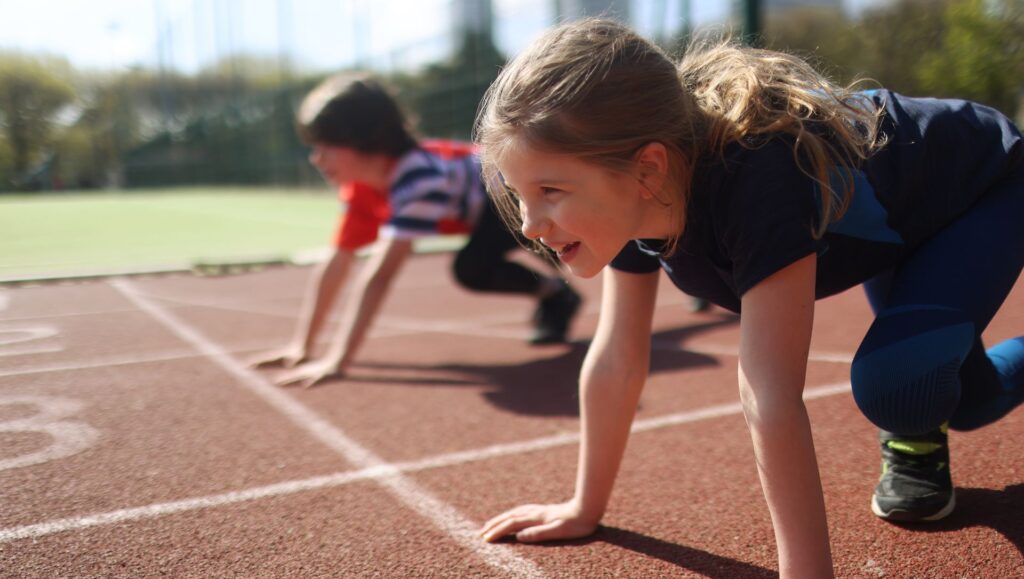Running is one of the most popular forms of exercise and marathon sports have gained a lot of popularity in recent years. It’s an excellent way to stay fit, and healthy, and reduce stress. It is a great way to challenge yourself and push your limits. People of all ages can participate in marathon sports and experience the benefits of running. Whether you are a beginner or an experienced runner, there are several tips you can follow to make your running experience more enjoyable and rewarding. In this article, we will discuss marathon sports for all ages and share tips for running at any stage of life.
Table of Contents
Benefits of Marathon Sports
Marathon sports offer several benefits for people of all ages. Running regularly can improve cardiovascular health, boost endurance, reduce stress, and enhance overall well-being. Regular running can also help maintain a healthy weight and improve mental health. Running is a low-cost activity that requires minimal equipment, making it accessible to people of all income levels. It is an excellent way to socialize, meet new people, and build a community of like-minded individuals.
Tips for Running at Any Age

Running is a lifelong activity that can be enjoyed by people of all ages. Whether you’re a teenager, an adult, or a senior citizen, running can provide several benefits. Here are some tips for marathon sports running at any age:
Start Slowly
If you’re new to running in marathon sports, start slowly and build up gradually. Begin with short distances and low-intensity workouts to avoid injury and burnout. Take time to warm up and stretch before your run to prepare your muscles and joints.
Invest in Proper Shoes
Invest in a good pair of running shoes that fit well and provide adequate support. Wearing the right shoes can prevent injuries and enhance your performance.
Mix Up Your Workouts
Mix up your workouts to prevent boredom and improve your overall fitness. Try different types of running, such as interval training, hill runs, and tempo runs, to challenge yourself and improve your endurance.
Listen to Your Body
Listen to your body and pay attention to any signs of pain or discomfort. If you experience any pain or discomfort, take a break from running and seek medical advice if necessary.
Stay Hydrated
Drink plenty of water before, during, and after your run to stay hydrated and prevent dehydration. Dehydration can lead to fatigue, cramps, and other health problems.
Marathon Sports Running for Seniors

Marathon Sports Running can provide several health benefits for seniors, including improved cardiovascular health, stronger bones, and improved mental health. However, as we age, our bodies may not be able to handle the same level of intensity as we used to. Here are some tips for seniors who want to start running:
Get Medical Clearance
Get medical clearance from your doctor before starting a running program, especially if you have any pre-existing medical conditions.
Focus on Low-Impact Workouts
Focus on low-impact workouts, such as walking, jogging, or light running, to reduce the risk of injury and joint pain.
Stretch and Warm-Up
Take time to stretch and warm up before your run to prepare your muscles and joints.
Set Realistic Goals
Set realistic goals and gradually increase the intensity and duration of your runs to avoid injury and burnout.
Running for Children and Teenagers

Running can be a fun and rewarding activity for children and teenagers. Regular running can improve cardiovascular health, boost self-esteem, and promote a healthy lifestyle. Here are some tips for children and teenagers who want to start running:
Focus on Fun
Focus on making running fun for your child or teenager. You can encourage them to run with friends, participate in local running events, and set achievable goals.
Start Slowly
Start slowly and gradually increase the intensity and duration of their runs. Allow them to take breaks and rest when needed to avoid burnout and injury.
Emphasize Safety
Emphasize the importance of safety when running. Teach them to always run in well-lit areas, wear reflective clothing, and carry a phone or ID in case of an emergency.
Incorporate Strength Training
Incorporate strength training exercises, such as push-ups, lunges, and squats, to improve their overall fitness and performance.
Running for Pregnant Women

Running can be a safe and healthy activity for pregnant women, but it’s important to take extra precautions to ensure the safety of both the mother and the baby. Here are some tips for pregnant women who want to continue running:
Consult with Your Doctor
Consult with your doctor before continuing your running routine during pregnancy. Your doctor can guide how to modify your workouts to ensure the safety of you and your baby.
Listen to Your Body
Listen to your body and adjust your workouts as needed. Avoid running in extreme heat or cold, and stay hydrated throughout your workout.
Wear Supportive Clothing
Wear supportive clothing, such as a maternity running bra and supportive running shoes, to reduce the risk of injury and discomfort.
Modify Your Workouts
Modify your workouts as your pregnancy progresses. Reduce the intensity and duration of your runs, and avoid exercises that put pressure on your abdomen.
Conclusion
Marathon sports can provide several benefits for people of all ages, including improved cardiovascular health, stronger bones, and enhanced overall well-being. Whether you’re a beginner or an experienced runner, following these tips can help you stay safe, prevent injury, and enjoy a rewarding running experience. Always listen to your body and consult with a medical professional if you experience any pain or discomfort. Remember, running is a lifelong activity that can provide health benefits and enhance your quality of life at any stage of life.












